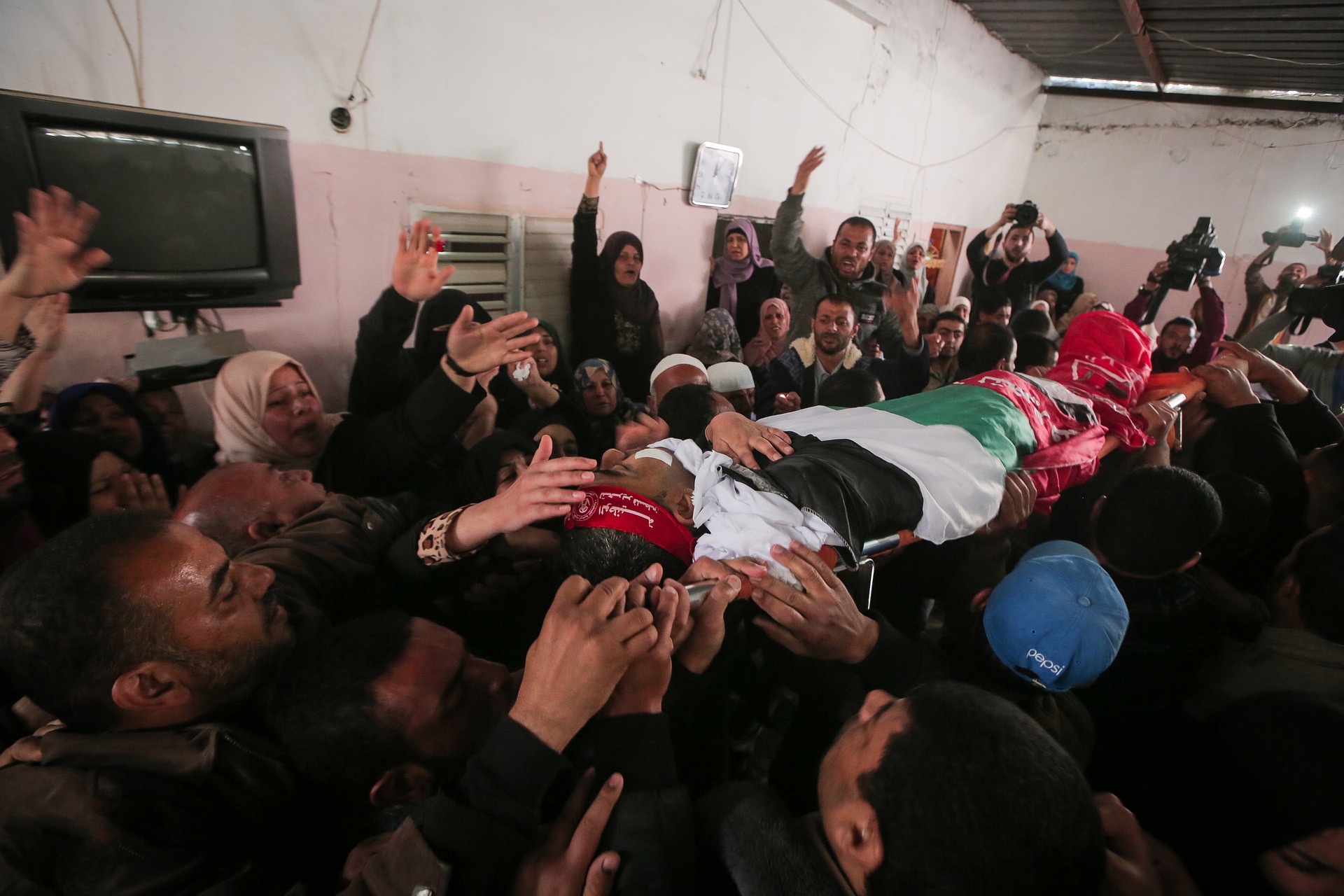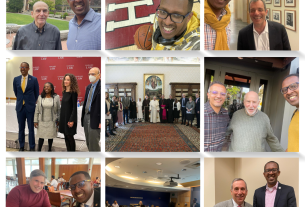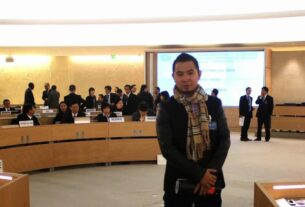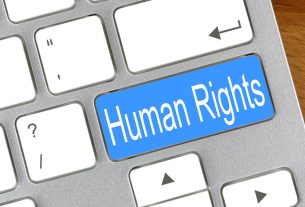The United Nations, along with other global human rights organizations, has called for a comprehensive and impartial investigation into the ongoing conflict in Gaza, particularly regarding the serious allegations made by Israel that hospitals and other civilian infrastructure are being used by militants for military operations. These allegations have formed the basis for several Israeli military actions in Gaza, targeting facilities that have been described as “human shields” or bases for armed groups. However, the claims and counterclaims from both sides of the conflict have sparked widespread concern within the international community.
The UN’s recent report, covering the period from October 2023 to June 2024, strongly advocates for an independent, neutral investigation into the accusations, emphasizing the importance of transparency and accountability. In particular, the UN human rights office has expressed concern about Israel’s claims, which have been described as “vague” and in some cases contradicted by publicly available information. At the same time, the humanitarian toll of the conflict on civilians, particularly those who rely on hospitals and other medical services, has escalated to crisis levels.
Israel’s Allegations and the Role of Civilian Infrastructure in the Conflict
Israel has repeatedly accused Hamas and other militant groups operating in Gaza of using civilian infrastructure, including hospitals, as military bases. According to Israeli authorities, militants have allegedly hidden weapons, established tunnels, and launched attacks from these facilities, putting them at the center of Israeli military operations. In response to these claims, Israel has justified its attacks on such infrastructure as necessary to neutralize security threats and protect its civilian population from rocket fire and other military activities originating from Gaza.
While Israel’s concerns about the use of civilian infrastructure for military purposes are grounded in its security interests, the international community, including the UN and several human rights organizations, has raised alarms over the destruction of civilian areas and the risks posed to non-combatants. Human rights bodies argue that the laws of war, specifically the Geneva Conventions, protect civilians and civilian infrastructure, and deliberate attacks on hospitals and schools could constitute violations of international law.
The Humanitarian Crisis: Gaza’s Health System Under Attack
One of the most pressing concerns voiced by global organizations is the catastrophic impact of the conflict on Gaza’s healthcare system. Hospitals, which should remain neutral spaces under international law, have been severely damaged by Israeli airstrikes, further exacerbating the suffering of civilians in the region. Medical facilities are struggling to treat the wounded and sick, and many are operating with reduced resources or are forced to close entirely due to ongoing bombardment.
The World Health Organization (WHO) and other humanitarian groups have condemned these attacks on healthcare infrastructure, which they argue violate international humanitarian law. The UN has also expressed concern that these actions have turned hospitals into targets rather than safe havens, contradicting Israel’s claims that they are being used for military purposes. The closure of border crossings, such as Rafah, has compounded the situation, preventing the evacuation of the wounded and the delivery of essential medical supplies.
The Use of Human Shields and Guerrilla Warfare Tactics
An additional factor in the complexity of the conflict is the ongoing use of guerrilla tactics by armed groups in Gaza, which include operating from within civilian neighborhoods and facilities. This has made it difficult for Israel to differentiate between military targets and civilian infrastructure. Israel has accused militant groups of using civilians as human shields, positioning their military assets in hospitals, schools, and densely populated areas to evade Israeli strikes. These tactics, if proven, would violate the laws of armed conflict.
On the other hand, militant groups argue that the dense population of Gaza, combined with the ongoing blockade and restrictions on movement, leaves them with little choice but to operate in close proximity to civilian areas. The asymmetry of the conflict, where Israel has access to advanced military technologies and armed groups in Gaza rely on unconventional tactics, further complicates the situation.
International Law and the Need for Independent Oversight
International law clearly prohibits the deliberate targeting of civilian infrastructure, including medical facilities, and requires all parties to a conflict to take measures to protect civilians. However, the use of civilian structures for military purposes can complicate the legal landscape. Israel’s military actions are based on the premise that certain civilian structures in Gaza are being used for military purposes, but these claims need to be fully investigated to ensure compliance with international law.
The UN and human rights organizations argue that, regardless of the legitimacy of Israel’s security concerns, the targeting of civilian areas and hospitals must be carefully scrutinized. Similarly, the use of civilian structures for military purposes by armed groups in Gaza must be thoroughly examined to determine whether it constitutes a violation of the laws of war.
Global Call for Independent, Impartial Investigation
Human rights organizations, including the UN, Amnesty International, and Human Rights Watch, have collectively called for an independent, unbiased investigation into the claims made by both Israel and Palestinian factions. These investigations should be conducted by neutral parties with the mandate to uncover the truth and hold accountable those responsible for violations of international law. There is widespread agreement among international bodies that, in a conflict of this magnitude, impartial investigations are crucial to uncovering facts, ensuring justice, and protecting the rights of civilians.
The UN has specifically called for the establishment of an independent body to investigate the allegations of attacks on civilian infrastructure, as well as the use of such infrastructure for military purposes. This investigation would aim to establish whether any party to the conflict has violated international humanitarian law and to ensure that those responsible are held accountable for their actions.
Conclusion: Ensuring Accountability for All Parties
As the conflict in Gaza continues, the international community must focus on the protection of civilians and the adherence to international humanitarian law. The call for independent, unbiased investigations into the claims of both Israel and Palestinian militant groups is an essential step in ensuring that the truth is uncovered, accountability is pursued, and justice is served.
Regardless of the complexity of the situation, the primary concern should remain the safety and well-being of civilians. The international community, through its various human rights bodies, must ensure that all allegations are examined thoroughly, that military actions comply with legal standards, and that the rights of civilians are protected from further harm. An independent, neutral investigation is not only a call for accountability but a necessary step toward bringing a lasting resolution to the ongoing crisis.
For more detailed information and substantial references on the topic discussed in the article, here are some valuable sources:
- United Nations Human Rights Office (OHCHR) – Reports on Gaza and Humanitarian Crisis
The UN regularly publishes updates and reports on the situation in Gaza, including those related to attacks on civilian infrastructure. Check their website for the latest reports:
https://www.ohchr.org/en - International Committee of the Red Cross (ICRC) – International Humanitarian Law and Protection of Civilians
The ICRC provides in-depth information on international humanitarian law, including the protection of medical facilities and civilians in conflict zones. Their reports and guidelines are available here:
https://www.icrc.org/ - World Health Organization (WHO) – Gaza Health Crisis
WHO has condemned attacks on hospitals and healthcare infrastructure in Gaza, focusing on the humanitarian impact. For updates and reports, visit their official website:
https://www.who.int/ - Human Rights Watch – Israel/Palestine Reports
Human Rights Watch documents the human rights violations in the Israeli-Palestinian conflict, including targeting of civilians and military operations in populated areas. For the latest reports:
https://www.hrw.org/middle-east/n-africa/israel/palestine - Amnesty International – Israel and Palestine
Amnesty International’s reports on Israel’s military operations in Gaza and the broader context of human rights abuses can be found at:
https://www.amnesty.org/en/countries/middle-east-and-north-africa/israel/ - Israeli Defense Forces (IDF) – Official Statements on Operations in Gaza
The Israeli Defense Forces provide official accounts and justifications for their military actions, including their claims about military use of civilian infrastructure. Their statements can be found here:
https://www.idf.il/en/ - Geneva Conventions and Additional Protocols
The legal framework that governs the protection of civilians and civilian infrastructure during armed conflict, including the use of hospitals and other protected sites, can be reviewed through the International Committee of the Red Cross’s online resource:
https://www.icrc.org/en/document/geneva-conventions
These references will provide deeper insights into the ongoing conflict, international law, and the humanitarian crisis in Gaza, along with the legal and military perspectives on the issues at hand.



